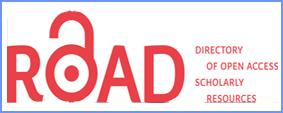Multicultural Education In Islamic Boarding School (A Descriptive Study of Pesantren DDI Mangkoso, South Sulawesi)
Abstrak
The main objective of this research was to elaborate how pesantren contend with multicultural education. Qualitative methods including: interviews, focus group discussion (FGD) and detailed observations of the life of pesantren were used. The researcher also examined the wide range of literatures related to the topic. The research focused on pesantren Mangkoso Barru, Indonesia, representing traditional pesantren in the region of South Sulawesi. The data was collected from the teachers, students, kyai (religious leaders) in this particular pesantren. The findings suggest that pesantren have their own understanding regarding multicultural education. Their understandings were mainly based on the holy Koran without learning from western perspectives. They believe that human beings were created on the basis of difference, so people must appreciate one another. The differences related to language, race, religion, are a must. These concepts have been implemented in the pesantren curricula. The curricula are very inclusive and more opened to any difference. The pesantren provides different materials which come from different sects, and students. There is no enforcement from pesantren management to just learn from specific sect. In addition, expanding networks of pesantren is also inclusive. They have already collaborated with different organizations in relation to development of pesantren management. Another issue considered was its vision of leadership which is perceived as very open. The leader (kyai) are frequently involved in multicultural campaigns, such as seminars, workshops, and bench markings. They perceive that the progress of pesantren depends strongly on the way the kyai deals with contemporary issues, including multiculturalism.
Referensi
Alismail, H.A. (2016). Multicultural Education: Teachers’ Perceptions and Preparation. Journal of Education and Practice. 7 (11), 139-146.
Anshoriy, N. (2009). Anregurutta Ambo Dalle: Maha Guru dari Bumi Bugis. Yogyakarta. Tiara Wacana.
Azra, A. Jamhari, (2006). Pendidikan Islam Indonesia dan Tantangan Globalisasi: Perspektif Sosio Historis dalam Jajat Burhanuddin, Dina Afrianti (Ed.), Mencetak Muslim Modern: Peta Pendidikan Islam Indonesia. Jakarta. Rajawali Pers.
Banks, J.A. (1993). Multicultural Education: Historical Development, Dimension, and Practice Review of Research in Education. American Educational Research Association.
Derderian-Aghajanian, A. (2010). Multicultural Education. International Education Studies. 3 (1). 154-160
Dhofier, Z., (1980) The Pesantren Tradion: A Study of the Role of the Kiai in the Maintenance of the Traditional Ideology of Islam in Java. Australian National University: Ph.D. Dissertation.
Effendi, J., (2008). A Renewal without Breaking Tradition: The Emergence of A New Discourse in Indonesia Nahdhatul Ulama during the Abdurrahman Wahid Era. Yogyakarta. Interfidei.
Fraser, N. (1995). From Redistribution to Recognition? Dilemmas of Justice in a post Socialist age. New Left Review.
Geertz, C., (1960) Religion of Java. Chicago: University of Chicago Press.
Geertz, C., (1960), The Javanese Kijaji: The Changing Role of a Cultural Broker Comparative Studies in Society and History, 2 (2), pp. 228-249
Gheng, L. (2013). Reflection on Multicultural Education under the Background of Globalization. Higher Education Studies. 3 (6). 53-57.
Kymlicka, W. (2003). Kewarganegaraan Multikultural. Jakarta. LP3E.
Lubis, A. at al. (2009). The Application of Multicultural Education and Applying ICT on Pesantren in South Sulawesi, Indonesia. WSEAS Transactions on Information Science and Applications. 6(8).1401-1411
Lubis, A.Y. (2015). Pemikiran Kritis Kontemporer. Jakarta. Rajawali Pers.
Lukens-Bull, R, A., (2005). A Peaceful jihad: negotiating identity and modernity in Muslim Java. New York: Palgrave Macmillan
Lukens-Bull, R, A., (2008). The Tradition of Pluralism, Accomodation, and Anti-Radicalism in the Pesantren Community. Journal of Indonesian Islam. 2 (1). 1-15.
Lukens-Bull, R., A. (2001). Two Sides of the Same Coin: Modernity and Tradition in Islamic Education in Indonesia. Anthropology and Education Quarterly, 32 (3), 350-372.
Muthohar, A, (2007), Ideologi Pendidikan Pesantren: Pesantren di Tengah Arus Ideologi-Ideologi Pendidikan. Semarang. Pustaka Rizki Putra.
Parekh, B. (2008). Rethinking Multiculturalism: Cultural Diversity and Political Theory. New York. Palgrave Macmillan.
Raihani, (2002). Curriculum construction in the Indonesian Pesantren: A comparative case study of curriculum development in two pesantrens. Unpublished Theses: Melbourne University.
Steenbrink, K., (1974) Pesantren, Madrasah, Sekolah: Pendidikan Islam dalam Kurun Modern. Jakarta: LP3ES.
Suparto, (2000), The Pesantren and Their Modernization: The Traditional Institutions for Islamic Studies and Their Cultural Preservation. School of Education: Flinders University Australia
Woodward, M.R. (1989), Islam in Java: Normative Piety and Mysticism in the Sultanese of Yogyakarta.




.png)









